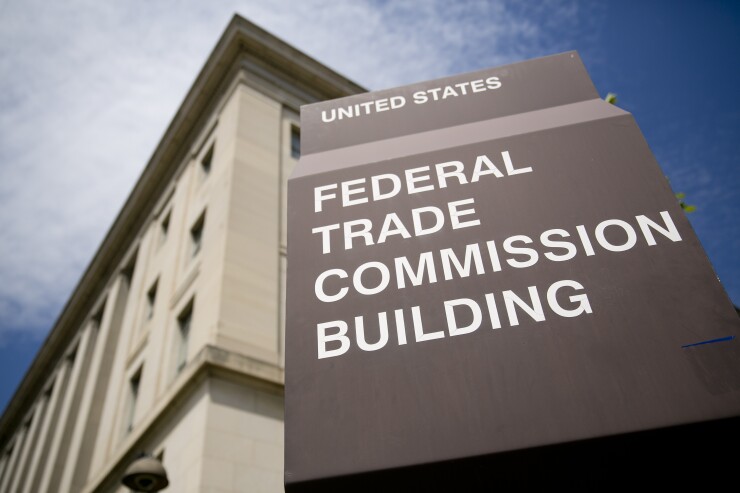
After issuing a set of
The practice, known as surveillance pricing, involves setting prices individually based on the customer's characteristics and behaviors. This data, which can include location and demographic information, can come directly from the company selling the goods or services, or the company can purchase it from data brokers, who sell personal data about consumers.
The FTC largely framed surveillance pricing as a practice that must be studied, hence the need for orders to the eight companies about the practice. The FTC's orders even stop short of directly accusing the companies of engaging in the practice, but
"The Federal Trade Commission issued orders to eight companies offering surveillance pricing products and services that incorporate data about consumers' characteristics and behavior," the press release said.
The FTC sent the orders to Mastercard, JPMorgan Chase and consulting firms Accenture and McKinsey. In addition, the FTC ordered the information from the following companies:
- Revionics, which creates AI-powered retail price optimization software.
- Bloomreach, which offers an e-commerce platform specializing in marketing automation, product discovery and content management systems.
- Task Software, which offers point-of-sale solutions for casinos, stadiums and restaurants.
- PROS, which offers price optimization, sales effectiveness and revenue management software as a service.
A spokesperson for Mastercard said the company was reviewing the FTC order and will cooperate with the commission in the process but offered no further comment.
A spokesperson for JPMorgan Chase declined to comment.
Revionics
"We are confident that the FTC will affirm the benefits of Revionics' AI price optimization software pending its research into this matter," the company told CNBC.
The orders to the eight companies are essentially identical, requesting within 45 days that each company disclose to the FTC what surveillance pricing programs the company has, what data on users the company purchases or collects, what the business impact of these practices have been and other information.
FTC Chair Lina Khan said in a press release about the orders that firms that harvest Americans' personal data "can" put people's privacy at risk, and now firms "could be" exploiting this vast trove of personal information to charge people higher prices.
The card network sells aggregate information about customer spending habits, which data-privacy advocates say goes past Mastercard's role as a payment processor. Mastercard explained the recent removal of certain advertisements as a business decision.
"Americans deserve to know whether businesses are using detailed consumer data to deploy surveillance pricing, and the FTC's inquiry will shed light on this shadowy ecosystem of pricing middlemen," Khan said.
The FTC's press release about the orders is the first public allegation that JPMorgan Chase or Mastercard engages in surveillance pricing.
Last year, Mastercard
"When we process a card transaction, we do not know who made the purchase or what they bought," the company said at the time.
In a similar vein, JPMorgan Chase launched Chase Media Solutions this year, letting marketers target their products to Chase customers using the bank's transaction data. The ads appear as personalized offers and the ability to earn cash back by spending with marketers.
Chase has scale and insights about customers that sets it apart from other retail media networks, according to Rich Muhlstock, the president of Chase Media Solutions, making it an attractive option for marketers looking to precisely target their ads.
"Chase reaches across brands, merchants and shopping verticals, providing a comprehensive view of purchase behavior," Muhlstock said at the time. "This strengthens the degree of personalization, helping brands deliver offers that stoke consumer interests."
It's unclear whether Chase Media Solutions allows marketers to offer different prices to each customer who receives their ads.






